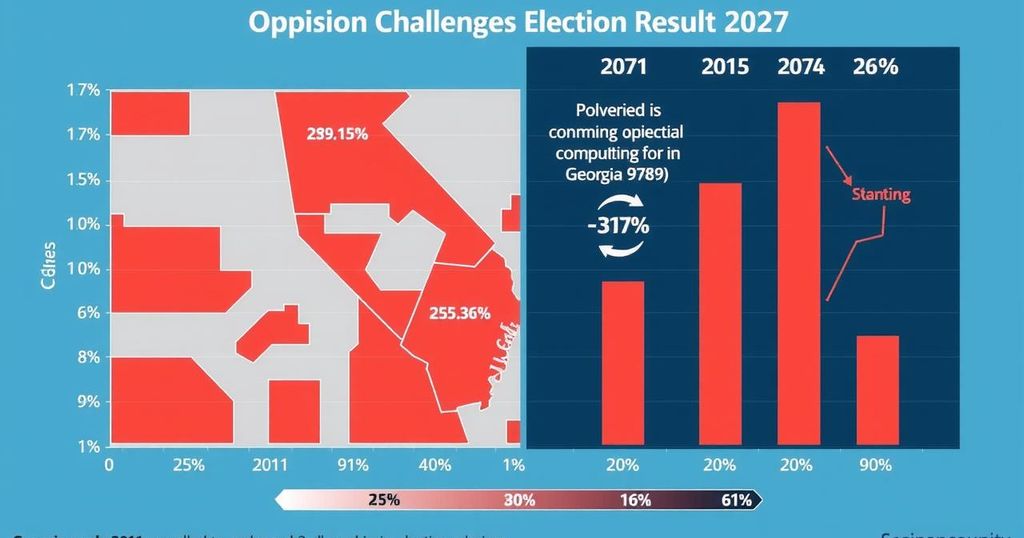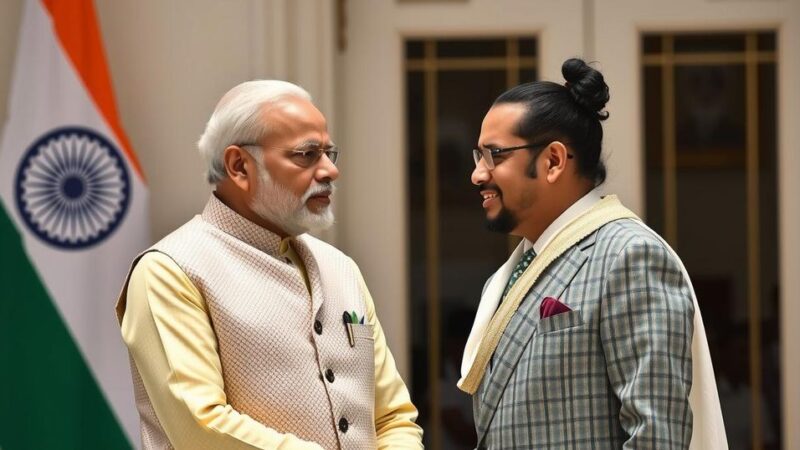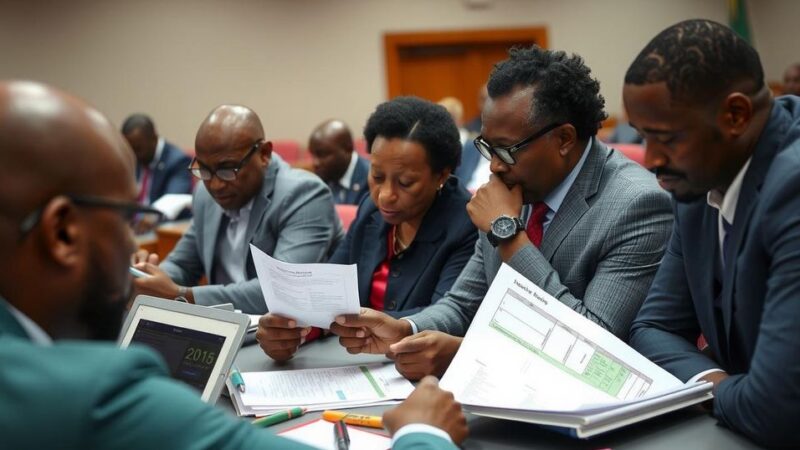Georgia’s October 2024 elections were marked by allegations of voter fraud and violence. Despite ruling party Georgian Dream claiming a significant victory, exit polls indicated opposition success. The Prime Minister defended the election’s integrity, while critics raised concerns about intimidation and the impact on democracy. These events occur as Georgia navigates complex relations with Russia and aspirations for EU integration, calling for independent investigations into the electoral process.
On October 26, 2024, Georgian citizens participated in crucial elections, marking the first significant electoral event since 2003. The ruling party, Georgian Dream (GD), proclaimed a decisive victory; however, this claim was met with allegations of voter fraud from opposition parties and observers. While GD reported a 56% win based on preliminary results from the Central Election Commission, exit polls for pro-opposition media suggested that the opposition secured a majority of votes. Amid widespread reports of election-related violence, the legitimacy of the results is now under scrutiny.
Prime Minister Iralki Kobakhidze has defended the election outcomes, asserting that the process adhered to democratic principles, despite the accusations of irregularities and intimidation. Eklund, former EU ambassador, countered his remarks by highlighting that voter intimidation significantly compromised the election integrity. This incident occurs within the broader context of global electoral challenges, with numerous countries experiencing violence and threats to democracy during their electoral processes this year.
As Georgian Dream has maintained power for twelve years, their latest campaign heavily focused on Russia’s conflict with Ukraine, suggesting that opposition parties could jeopardize national peace. Furthermore, Georgia recently faced setbacks in pursuing European Union membership due to the ruling party’s anti-Western stance and controversial legislation perceived as undermining democracy. The potential for increased alignment with Moscow raises concerns about the future of Georgian civil society and the influence of external powers. Follow-up investigations into the electoral process are essential to protect the will of the Georgian people.
Georgia’s recent elections are significant, reflecting a broader trend of electoral struggles worldwide in 2024. Reports of voter intimidation and violence have emerged, emblematic of challenges faced by democracies. The ruling party, Georgian Dream, has come under fire for not only its electoral tactics but also its alignment with Russia amid a global call for democratic practices. With major implications for Georgia’s political future, these elections serve as a litmus test for the health of democracy in the region. This political landscape is further complicated by the historical context of Georgia’s conflict with Russia and its aspirations towards European integration, which have been impacted by domestic policies and party rhetoric.
The contested election results in Georgia underscore significant vulnerabilities within electoral processes, raising alarms regarding the integrity of democracy in the country. With accusations of fraud, voter intimidation, and the ruling party’s increasing ties with Moscow, it is crucial for independent authorities to investigate these claims thoroughly. The political future of Georgia hinges not only on its internal dynamics but also on its relationships with broader international communities, highlighting the necessity for transparent electoral practices to uphold democratic values.
Original Source: theowp.org






